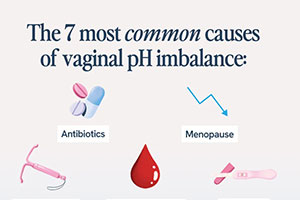Can You Sue Someone for Giving You an STD?
Relationship | by
The incidence of sexually transmitted infections (STIs), also referred to as sexually transmitted diseases (STDs) or venereal diseases (VD), is on an upward trajectory globally, including in the United States. The U.S. has seen a consistent increase in STIs since 2014, with over 2.5 million cases of chlamydia, gonorrhea, and syphilis reported to the CDC in 2021 alone.
Gonorrhea and syphilis have shown particularly sharp increases, with gonorrhea cases up by about 28% since 2017 and syphilis more than doubling over the same period. Certain demographics, including individuals under 25, racial and ethnic minorities, and gay or bisexual men, face a higher risk of contracting STDs. Genital herpes remains prevalent, with approximately 11.9% of people aged 14 to 49 years affected by the HSV-2 virus, equating to around 47.9 million Americans within this age bracket.
Given this rising trend, individuals may ponder their legal options should they contract an STI under dubious circumstances. Can legal recourse be pursued if one feels deceived or unknowingly exposed to an STI?
Legal Actions
for STI Transmission The ability to sue over STI transmission hinges on various factors, including the specifics of the case, the STI type, and state laws.
Legal claims often fall under negligence or intentional tort theories. Negligence might be applicable if the infected party failed to disclose their STI status, thereby allowing for a civil lawsuit covering damages like medical costs, emotional distress, and lost income. Intentional exposure, through deceit or coercion, might constitute battery or sexual assault, potentially leading to criminal charges alongside civil litigation.
Wrongful infection of an STI might be a viable legal claim, particularly for unmarried individuals who contract an STD unknowingly from a sexual partner.
Understanding the Legal Framework
Statute of Limitations This legal deadline varies by state and the nature of the claim, such as negligence or intentional tort, generally spanning 2-3 years from when the infection was discovered or reasonably should have been discovered.
Type of STI
The severity and long-term impact of the STI significantly influence legal actionability. STIs leading to chronic conditions, infertility, or significant emotional distress, like HIV/AIDS, hepatitis B and C, herpes, and syphilis, are more likely to be pursued in court.
Gathering Evidence
A strong case necessitates robust evidence, including:
- Medical documentation of the diagnosis and treatment.
- Witness testimonies to corroborate circumstances of transmission.
- Communication records that might indicate the defendant’s knowledge of their STI status or sexual activities.
- A clear timeline establishing the relationship, sexual encounters, and discovery of the STI.
Claiming Damages
Victims seeking compensation must document all related expenses and impacts. This may encompass medical treatments, loss of income, emotional distress evidence, and, in rare instances, punitive damages for particularly egregious cases.
STI lawsuits require proving unawareness of the defendant’s STI status and that the defendant was the infection source. Victims considering legal action should consult with a personal injury attorney for a viability assessment of their case. Free consultations may offer further guidance and support for pursuing justice.



